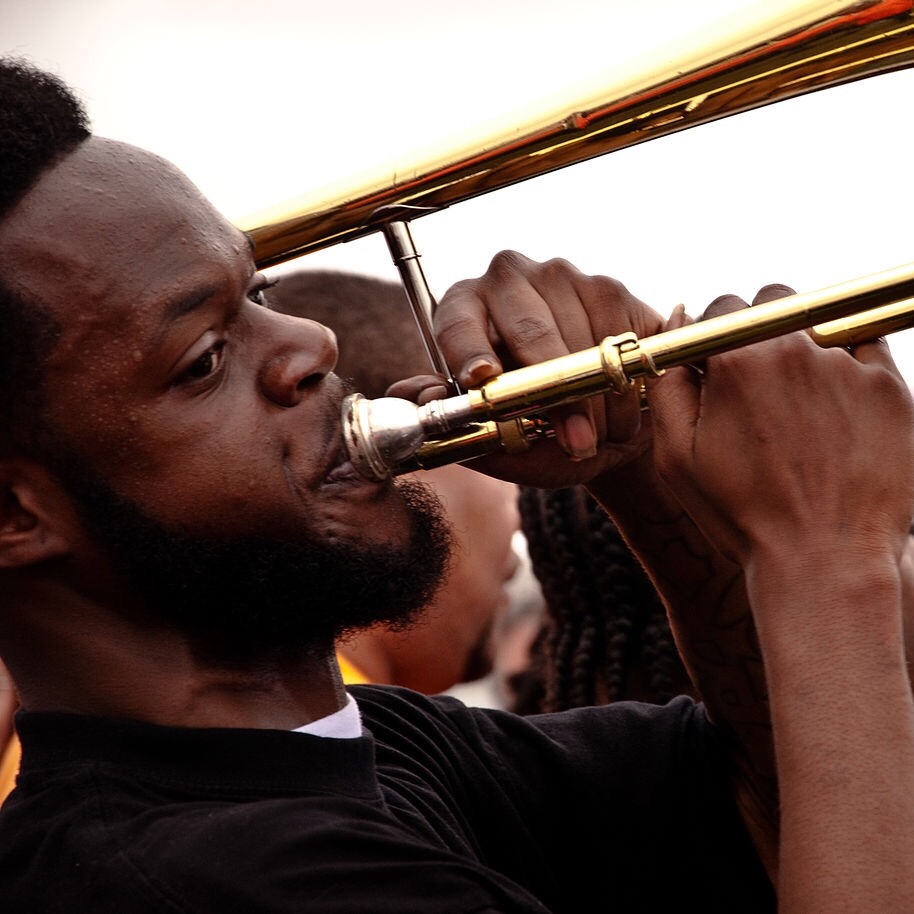[ad_1]
The origin of jazz is a complex story about the relationship between music and race in America. It was born from Black artists who came from a tradition of making the most of their limited resources to create something out of nothing.
These individuals subverted the traditional use of European instruments and made something new. They drew on the Black experience in America to create a sound and culture that the world had never experienced before.
The African elements, particularly the drums, are responsible for jazz’s unique rhythm and feel while many of the harmonies can be traced back to Europe. This unlikely combination produced one of America’s most treasured and original genres of music.
Without a doubt, the Black experience in the U.S is responsible for the birth and evolution of jazz. The majority of the art form’s most important innovators were African-American, and some early jazz pieces can be linked to negro spirituals.
Blues, another Black form of musical expression, also played an integral role in the development of jazz and provided the foundation for its creation.
New Orleans is the birthplace of modern jazz music. As a port city with people arriving from all parts of the world, its position as a melting pot for cultural exchange truly helped jazz thrive and rise to popularity within the city.
Jazz reinvigorated New Orleans nightlife because it was more upbeat than traditional classical music and offered people an opportunity let loose and dance. It also became the preferred music for the city’s famed Storyville red light district and was played frequently in brothels.
Although the first jazz recording debuted in 1917, its presence had been felt way before that. As is the case with most art forms, there is no official date that marks the birth of jazz, and several competing stories exist about its origins.
Even the word “jazz” itself has its own history. Originally, it was spelled “j-a-s-s” and considered a dirty word because it referred to a woman’s backside.
Another early spelling was “j-a-s” which is thought to have two different interpretations. Dating back to 1860, there was an African-American slang term, “jasm”, which meant “energy” and could be linked to the name and style of music.
On the other hand, it could have referred to the “jasmine” perfume that New Orleans prostitutes wore to seduce their suitors. The term “jazz” did not exist until the music reached New York City and was spelled that way on Broadway.
An early jazz pioneer, Jelly Roll Morton, claimed to have invented jazz in 1902. However, a Black man named Charles “Buddy” Bolden formed a band in 1895 that is said to have been responsible for what eventually became known as jazz music.
The reality is that many of these New Orleans musicians were on the cutting edge of a musical genre that there simply was no language for at the time. Prior to jazz, most modern forms of music were played off of sheet music. Jazz musicians often had learned to play music by ear and had an ability to improvise on the spot, which was highly uncharacteristic and impressive.
For over one hundred years, the genre has been vibrant and its influence on contemporary Hip-Hop and R&B is undeniable. Notable musicians like Louis Armstrong, Nat King Cole, Mary Lou Williams, John Coltrane, and Miles Davis ring a bell in the homes of people from all different racial backgrounds.
Jazz is as American as sweet potato pie. Black people used musical ingredients that others disregarded to whip up something delicious. Many would even say it’s better than the original recipe.
[ad_2]
Source link

